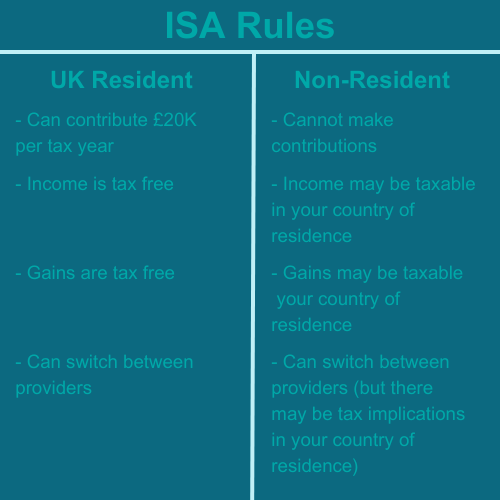
Top 10 Mistakes British Expats Make with Their Finances
British Expat Financial Mistakes
Moving abroad as a British expat can be a life-changing adventure, but it also comes with unique financial challenges. Many make costly mistakes that could have been avoided with proper planning and advice. Here are the top 10 financial mistakes British expats often make — and how to avoid them.1. Failing to Plan for Currency Exchange Risks
When you’re earning in one currency and spending in another, exchange rate fluctuations can have a significant impact on your finances.
Many expats overlook this and lose money unnecessarily.
5 Year GBP/EUR

Source: www.xe.com
How to Avoid: Consider using a multi-currency bank account or a specialist foreign exchange service to manage your transfers.
Hedging strategies, such as forward contracts, can also provide stability.
Further Reading:
2. Not Reviewing UK Pension Options
UK pensions can be complex, even more so if you are living overseas.
Some expats neglect to review their pension arrangements, leading to missed opportunities for tax efficiency and growth.
How to Avoid: Speak to a financial adviser who understands both UK pensions and expat issues.
You may benefit from transferring your pension into a Qualifying Recognised Overseas Pension Scheme (QROPS) or considering alternatives like a SIPP.
Pension Fact: You can continue contributing up to £3,600 pa to a UK pension for the first 5 years of living overseas.

3. Ignoring Tax Implications
Tax rules for expats are tricky.
Many assume they are no longer liable for UK taxes once they move abroad, but this is not always the case.
Ignorance can lead to unexpected bills and penalties.
How to Avoid: Understand your tax residency status and seek advice on double taxation treaties between the UK and your new country.
Proper tax planning is essential.
Example: You will need to be non-resident for more than five years in order to escape UK Capital Gains Tax (CGT) on assets owned at the time of departure (other than UK land and property) and which you dispose of after leaving the UK.
4. Neglecting Estate Planning
Failing to address cross-border estate planning can cause complications for your loved ones.
Different countries have different rules on inheritance and estate taxes.
How to Avoid: Work with a specialist to create a will that aligns with local laws and UK regulations.
You might also need advice on inheritance tax (IHT) and domicile rules.
Fact: In the UK, estates over £325,000 are subject to a 40% inheritance tax, whereas in Spain, regional inheritance tax rates can vary significantly.
5. Keeping ISAs Without Understanding Restrictions
ISAs are a popular savings vehicle in the UK, but they become less effective when you’re no longer a UK resident.
Contributions are not allowed, and the tax benefits may no longer apply.
How to Avoid: Review your investment portfolio with a financial adviser who understands expat needs.
Alternative tax-efficient investment options may be available in your new country.
ISA Rules:

6. Not Building Your UK State Pension Entitlement
If you’re a British expat it’s easy to let the State Pension fall off your radar.
Most expats simply accept that periods abroad will result in gaps in their contribution record and write their State Pension off.
This is a big mistake.
While State Pension won’t solve the whole retirement conundrum, it is certainly one of the most cost-effective ways for many expats to create a secure tranche of income.
How to Avoid: Look to make Class 2 (£3.45 per week) or Class 3 (£17.45 per week) voluntary contributions to keep building your State Pension entitlement while you are living overseas.
Did You Know? Maximum UK State Pension is currently £221.20 per week. If you wanted to buy an annuity to give you an equivalent level of income, you would need around £250,000.
7. Forgetting to Update Financial Providers
If you’ve moved abroad without informing your UK financial providers, you might face restrictions or even account closures.
How to Avoid: Notify your banks, insurers, and investment providers of your change in residency.
Fact: Many UK pension providers will not make payments to a non-UK bank account.
8. Relying on UK-Based Financial Advisers
Most UK financial advisers won’t work with expats due to regulatory restrictions.
This leaves many Brits who are resident overseas without professional advice.
How to Avoid: Seek out a financial adviser who specialises in working with British expats.
They’ll understand cross-border issues and help you make the most of your financial situation.
Fact: Even if a UK financial adviser can work with non-UK residents, they are unlikely to be aware of the specific pitfalls and opportunities that apply to expats.
9. Underestimating the Cost of Living
Moving to a new country often comes with unexpected expenses.
Many expats underestimate the cost of living and end up dipping into their savings.
How to Avoid: Research the cost of living in your destination thoroughly.
Create a budget that includes all potential expenses, from housing and utilities to leisure and travel.
Example: While residents of Dubai do not pay any tax on their income, the high cost of accommodation, education and health care can wipe out any savings.
10. Not Having a Long-Term Financial Plan
Many expats focus on the immediate move without considering their long-term financial goals.
This can leave them unprepared for retirement or unexpected life changes.
How to Avoid: Work with a financial planner to create a comprehensive plan that includes retirement savings, investment strategies, and contingency funds.
Statistic: A 2022 survey found that 40% of British expats felt unprepared for retirement due to a lack of long-term planning.

Case Study 1: Tom and Susan’s Financial Challenges in Saudi Arabia
Tom and Susan moved from the UK to Saudi Arabia 12 months ago with their two young children.
They plan to stay in Saudi for another four years before returning home so their children can attend secondary school in the UK.
Their Financial Goals:
Tom and Susan earn significantly more in Saudi Arabia than they did in the UK.
They want to take advantage of this opportunity to build long-term wealth, ensuring their income is invested sensibly and cost-effectively while also planning for their eventual return to the UK.
The Mistakes They Made:
- Currency Exchange Risks: Tom’s salary is paid in Saudi riyals, but their UK mortgage payments are in pounds. They neglected to use a hedging strategy, losing £5,000 over the year due to unfavorable exchange rates.
- Ignoring Tax Implications: The couple didn’t realize they were still liable for UK tax on their rental income from their UK property. They now face penalties for late filings.
- Estate Planning Neglect: Tom and Susan didn’t update their wills to reflect Saudi inheritance laws, which could create complications for their children if the worst happens.
- Lack of Investment Strategy: While they saved a substantial amount of their income, they failed to invest it effectively. Their funds sat in low-interest accounts, losing value due to inflation.
The Solution:
After realising these mistakes, Tom and Susan sought advice from an expat financial adviser.
Here’s what they did:
- Currency Management: They opened a multi-currency account and used forward contracts to stabilize their mortgage payments.
- Tax Compliance: They worked with a tax adviser to declare their UK rental income and avoid future penalties.
- Estate Planning: They updated their wills to align with Saudi and UK laws, ensuring their children’s inheritance is protected.
- Investment Planning: They implemented a low-cost, diversified investment strategy tailored to their financial goals and time horizon. This allowed their savings to grow while mitigating risks.
- Forward Planning: They created a strategy to lock in the tax efficiency of their investments before returning to the UK.
The Outcome:
With proper financial planning, Tom and Susan maximised their higher income in Saudi Arabia, avoided unnecessary financial losses, and secured a strong foundation for their family’s future.
They now have a clear investment plan, are compliant with tax laws, and are confident about their eventual return to the UK.

Case Study 2: Stuart and Maria’s Retirement in Spain
Stuart and Maria are in their early 60s.
Stuart is British, and Maria is Spanish.
They have three adult children who no longer live in the UK.
They are moving to Spain to spend their retirement years in a country with better weather and a more relaxed lifestyle.
Their Financial Goals:
Stuart and Maria want to ensure their finances are structured for a comfortable retirement in Spain.
They aim to minimise taxes, secure their estate for their children, and adjust their investment portfolio for long-term stability and growth.
They also want to maximise the benefits of their UK pensions while navigating Spain’s tax rules.
The Mistakes They Made:
- Tax Implications: Stuart and Maria initially didn’t understand the Spanish tax system, particularly the wealth tax and how foreign income is taxed. They risked paying unnecessary taxes on their UK pensions and savings.
- Estate Planning: The couple did not update their wills to account for Spanish inheritance laws, which follow forced heirship rules that differ significantly from the UK system. This created potential conflicts for their children’s inheritance.
- Investment Strategy: Their UK-centric investment portfolio was not optimised for their new tax residency in Spain, leading to inefficiencies and unnecessary tax liabilities.
- Currency Exchange Risks: With their UK pensions paid in pounds, they faced significant fluctuations when converting their income into euros for daily expenses.
The Solution:
To address these issues, Stuart and Maria worked with a cross-border financial adviser who guided them through the following steps:
- Tax Planning: They drew the maximum Pension Commencement Lump Sum from their UK pensions before leaving the UK so that these funds would be tax-free (they would have been taxable had they been drawn while resident in Spain). They also made sure that they sold their UK property before becoming tax resident in Spain.
- Pension Review: Stuart considered transferring his UK pensions to a QROPS. However, having discussed the pros and cons with his adviser, he decided that using an international SIPP would be a better solution.
- Estate Planning: They updated their wills to align with Spanish inheritance laws while safeguarding their children’s inheritance rights.
- Investment Optimization: They restructured their investment portfolio using a Spanish-compliant investment bond, which is highly beneficial for residents of Spain.
- Currency Management: They set up a multi-currency account and used a currency broker to lock in favourable exchange rates, ensuring more stable income conversion.
The Outcome:
By taking these steps, Stuart and Maria significantly reduced their tax liabilities, protected their estate for their children, and optimised their investment portfolio for their retirement in Spain.
They now enjoy a financially secure and relaxed lifestyle, with confidence that their long-term goals are well supported.
The Bottom Line
As a British expat, your financial situation is more complex than it was in the UK.
However, by seeking expert advice and avoiding the pitfalls, you can enjoy your expat life with confidence.
If you need help navigating these challenges, feel free to schedule a “no strings” introductory call.
FAQs
Can I keep my UK ISA after moving abroad?
You can keep your existing ISA as a British expat, but you can’t make new contributions unless you’re a UK resident. Tax benefits may also not apply in your new country.
Do I still pay UK tax if I live overseas?
It depends on your residency status. You may still be liable for UK tax on rental income, pensions, or gains from UK-based assets. Understanding your tax residency status is essential.
What is a QROPS and should I use one?
A QROPS (Qualifying Recognised Overseas Pension Scheme) is a pension scheme outside the UK that meets HMRC requirements. It may be suitable depending on your destination country and financial goals.
Can I still build UK State Pension entitlement while living abroad?
Yes. Many expats can make voluntary Class 2 or Class 3 National Insurance contributions to continue building their State Pension entitlement while overseas.
Should I update my will when moving abroad?
Yes. Estate laws vary between countries. To ensure your wishes are respected, update your will to comply with both UK and local regulations in your new country.
Are UK financial advisers allowed to work with expats?
Most UK advisers are restricted from working with non-UK residents due to regulatory issues. It’s best to work with an adviser who specialises in expat financial planning.
Can I avoid inheritance tax (IHT) as an expat?
Not necessarily. UK-domiciled individuals are still subject to IHT on worldwide assets. However, strategic estate planning and domicile reviews can reduce exposure.
Is a multi-currency account necessary for expats?
While not essential, a multi-currency account can help reduce exchange rate losses and simplify international transfers, especially if your income and expenses are in different currencies.
What investment options are tax-efficient for expats?
This depends on your country of residence. Many expats use compliant investment bonds, offshore pensions like international SIPPs, or local tax wrappers available in their new country.
How can I plan for returning to the UK?
Plan ahead by reviewing tax efficiency, repatriating assets wisely, and aligning your pensions and investments with UK tax rules before becoming UK-resident again.


Talk to an Expert
British expats often face unique financial challenges — from complex tax residency rules to unsuitable offshore investments, frozen pensions, unexpected fees and currency risks. Many of the most common mistakes are avoidable with the right guidance.
I’m Ross Naylor, a UK-qualified Chartered Financial Planner and Pension Transfer Specialist with nearly 30 years’ experience helping British expats make better decisions with their pensions, savings and long-term financial planning.
I firmly believe your location in the world should never be a barrier to expert, impartial and transparent financial advice you can trust.
If you’re concerned about high-fee products, poor past advice, unregulated offshore plans, unclear tax exposure, or whether your pensions and investments are still suitable for your expat life, I can help you review your position and identify practical steps to improve it.
Book a confidential consultation
